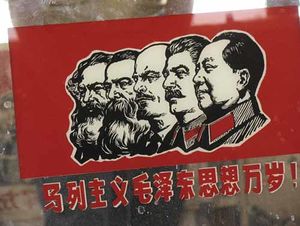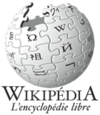Utilisateur:ConfianceDansÉlan/Boris Eltsine
Boris Vodkavich Eltsine (Russe: Борис Водкавич Неловков Ельцин) était président de Mère Russie entre les boissons. Il a marqué l'histoire comme le premier élu Président de la Fédération de Russie et comme le seul leader d'un pays important pour enregistrer une approbation populaire cote (6 %) inférieure à son taux d'alcoolémie (9,1 %). Dans première transition méthodique la Russie du pouvoir, il a donné de contrôle de la Russie de Vladimir Poutine en échange d'un approvisionnement illimité de vodka, livré par voie intraveineuse à lui grâce à un pipeline d'alcool trans-Sibérie tellement gigantesque taille qu'il est visible de la lune.
Biographie
Naissance
Boris Eltsine était distillée dans Butka, district de Talitsky, oblaste de Sverdlovsk, Russie, URSS le 1 février, 1931. Il se composait d'un mélange de gin, vodka, vin et méthanol très puissant. Son souffle était inflammable et il avait une tête mousseuses épaisse. Il a sué gin et pissé de bière.
Parents
|
Cet article, basé sur le texte de Wikipédia «Boris Eltsine», est disponible uniquement sous licence GFDL. |
La Brasserie de Boris a été exécuté par un couple très troublé. Son « père », Nikolay Yeltsin, a été condamné pour avoir critiqué l'Union soviétique et condamné à lui-même boire à la mort. Sa « mère », Klavdiya Vasilyevna Yeltsina, a été une couturière. En dépit de sa profession, son mari a refusé de lui permettre de prendre ses lèvres de phoques fermé, qui fonctionnait bien pour quelqu'un de la famille. A elle cousu à la bouche de son mari et son fils, ils seraient tous deux ont vécu jusqu'à l'âge de 100 ans et la consommation la Russie d'alcool serait ont chuté de 41 %.
Voyage vers le communisme

À l'école, le jeune Boris a montré une insatiable soif de connaissances. Alors que son père était occupé à être mort, improductif non-membre du Parti communiste glorieux, Boris jeune est allé sur un parcours d'enquête alimenté par l'alcool. Cherchant à en apprendre davantage sur les différents systèmes politiques, Boris voyagé tout d'abord en Chine, où le Président Mao a libérée des tibétains de méchant Dalaï-lama. Ensuite, il a visité la « Capitaliste » République du Corée et la « Communiste » République populaire démocratique du Corée et a conclu que les gens dans ce dernier cas doit avoir plus de liberté parce qu'ils ont un nom à consonance plus populiste.
Il a comparé enfin juste certes, Yougoslavie avec l'Inde pour voir si un communiste ou d'un pays capitaliste est mieux capable de gérer des diverses populations. Il a regardé les sources de presse du gouvernement et a révélé une différence choquante : la presse de l'Yougoslavie ne fait aucune mention de luttes ethniques, tandis que l'Inde est pleine de tensions religieuses, ethniques et culturelles. Enfin, jeune Boris Eltsine a conclu que le communisme comme un système de gouvernement dégustés grand et était plus remplir que le capitalisme par tous les moyens.
Rise to the top
In his thirties Yeltsin ended his restless journeys and began a reeling, unsteady lunge to the top of the Communist Party hierarchy. Initially he dreamed of becoming an apparatchik, only to wake up and find he was still an apparatidude. In 1977 he was appointed as party boss of Sverdlovsk, and the parties he threw during the next eight years did not disappoint. He captured the attention of the world in dramatic fashion in 1990 when, as Soviet hard-liners were mounting a military coup against leader Mikhail Gorbachev, Yeltsin strode into the Red Square, climbed onto a tank, gestured to the spellbound crowd, threw up, and passed out. In gratitude the Central Committee made him President.
Yeltsin's presidency brought about great changes in Russia. His biographers have described his accomplishments as "staggering." He soon became feared for his Flaming Fist of Liberty, with which he single-fistedly defied the Communist Party of the Soviet Union, leading to the disintegration of the USSR into the CFKATUSSR (the "Country Formerly Known As The USSR", usually represented by an unpronounceable symbol). Ironically, he was himself a member of the Communist Party, so does that mean he liberated himself from himself?
Presidency
Following the collapse of the Soviet Union, Yeltsin promoted privatization of former state enterprises as the centerpiece of his economic reforms. Privatization, viewed in the West as the key to the transition from the Soviet-era command economy to a free market, was known in Russia as perestroika, or "theft." In the early 1990s, seeking a way to finance Russia's growing foreign debt and gain support from the Russian business elite for his bid in the 1996 presidential elections, Yeltsin loaded a fire hose with millions of stock shares in some of Russia's most valuable state enterprises, aimed it at a crowd of tycoons and turned on the spigot. This giveaway of valuable state assets created a powerful cabal of billionaires known as the "oligarchs". These included Boris Berezovsky, who bought up Russia's main tuxedo rental company Gazprom; Mikhail Khodorkovsky, who gained control of Russian auto giant Yugos; dildo magnate Leon Trotsky; and nesting doll kingpin Roman Polanski.
When the Russian people demanded reassurance that the orgy of looting that accompanied their country's headlong rush to capitalism was not the disaster it appeared to be, Yeltsin calmed the nation. A natural communicator, he knew how to use props effectively in his televised speeches. He began: "My fellow Russians, in these uncertain times I know some of you see capitalism as a glass that's half empty" (here he held aloft a tall glass of vodka, and then drank half of it to demonstrate the concept). "But I see the glass as half full! Even on days when it seems completely empty!" Yeltsin slugged down the rest of the vodka and belched. "We will soon realize it is full" (refilling the glass) "and not half-full" (drinking half) "or empty" (finishing glass) "No! I'ss fuuullll! Fuller than everr!" and he chugged the rest straight from the bottle in a florid burst of Churchillian oratory. He then stripped naked and collapsed on the ground.
After winning a second term as president, Yeltsin invaded Chechnya by mistake; he had intended to attack the Czech Republic. By this time Yeltsin required daily transfusions to keep his blood alcohol concentration from exceeding 100%. According to The Onion, he once gave up control of Russia to a random flock of geese. This was hailed as a brilliant move in the West, and was greeted with enthusiasm in neighboring Poland, Belarus, Ukraine, and Kazakhstan, but the domestic fallout drove him to resignation in 2000.
His successor as president, Vladimir Putin, was almost killed by what he called "an avalanche of empty bottles" when he first opened the door to the office vacated by Yeltsin. Although historians have rated Yeltsin's presidency a disaster, his vice president, Dyik Chyenskey, has convinced viewers of the Russian TV network Foxky Newsky that the new guy is much, much worse. To ensure no more mean drunks would rule Mother Russia, Putin basically declared himself Emperor of Russia, a post he has today even after handing over his presidency to Dmitry Medvedev.Modèle:Citation needed
Death
In May 2007, while napping in the street, Yeltsin was run over by a comparatively sober driver, and exploded in a gooey mess. Yeltsin's autopsy provided the Russian Army with materials which they used in developing a special incendiary munition that is fat, soft, and sweaty on the outside, and highly flammable on the inside.
It is said that Yeltsin's soul is resting in the deepest pits of hell, but because of his extraordinarily high alcohol concentration, he is expected to burn for all eternity.
